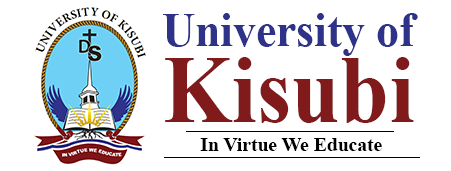BACHELOR OF CHILD PROTECTION AND DEVELOPMENT
Background
Child protection and development are crucial aspects of nurturing the future generation and ensuring their well-being and growth into responsible adults. The University of Kisubi recognizes the significance of these areas and established a comprehensive program focused on child protection and development.
The University of Kisubi’s program on child protection and development is designed to address the multifaceted needs of children in Uganda and beyond. The program encompasses a wide range of disciplines, including psychology, social work, education, and law, to provide a holistic approach to safeguarding and promoting the welfare of children. Through a combination of theoretical knowledge and practical training, students enrolled in the program are equipped with the skills and expertise necessary to address the diverse challenges facing children in contemporary society.
One of the primary objectives of the program is to raise awareness about the importance of child protection and development among future professionals working in various fields related to child welfare. By educating students about the rights of children, the impact of trauma and abuse, and the role of intervention and prevention strategies, the program aims to empower graduates to become advocates for children’s rights and champions of their well-being.
Furthermore, the program at the University of Kisubi emphasizes the significance of collaboration and multidisciplinary approaches in addressing issues related to child protection and development. Students are encouraged to work together across different disciplines to develop comprehensive solutions that take into account the complex interplay of factors influencing children’s lives. By fostering collaboration and promoting a holistic perspective, the program seeks to equip students with the tools needed to make a real and lasting impact in the field of child welfare.
In addition to theoretical coursework, students enrolled in the program are provided with practical training opportunities to apply their knowledge in real-world settings. Internships, field placements, and research projects enable students to gain hands-on experience working with children and families, as well as with community organizations and government agencies involved in child protection initiatives. These practical experiences not only enhance students’ professional skills but also cultivate empathy, cultural sensitivity, and ethical decision-making – essential qualities for effective child advocates.
Through the program, we at UniK are committed to promoting ethical standards and best practices in child protection and development. Students are guided by a code of ethics that emphasizes the importance of respecting children’s rights, maintaining confidentiality, and acting in the best interests of the child at all times. By instilling ethical principles in students, the program ensures that graduates uphold the highest standards of professionalism and integrity in their work with children and families.
Programme Structure
The programme is open to full time, weekend, blended, online, part time and holiday sessions consisting of a minimum 45 hours of lectures and at least 12 weeks of practical, all forming a coherent whole. Research Report is required at the end of the second semester of the third year.
The weekend programme starts its lectures on Friday afternoon and the whole of Saturday.
Acceptance into the Bachelor of Child Development and Protection (BCDP) at the University of Kisubi requires that all the admission standards be met including:
4.1 Direct Entry Scheme
One must have obtained at least six credits including Mathematics and English at the Uganda Certificate of Education (UCE) Examinations or its equivalent and at least two principal passes in the relevant subjects at Advanced level (UACE).
4.2 Diploma Holders
This is meant to students who have completed a diploma (at credit / distinction level) in any relevant field from a recognized institution.
4.3 Mature Age Entry
For Admissions under mature age entry scheme, a candidate must pass Child protection mature entry exam both oral and written examination.
4.4 Higher Certificate of Education
Candidates who do not have minimum entry requirements for entry into undergraduate progrmmes of the University of Kisubi may spend a pre-entry year at the university. To qualify for pre entry programme, a candidate must have obtained one (1) principal pass at one sitting at “A” Level in the subjects. S/he shall pass the pre-university examinations with an average of at least 55% and be admitted for an undergraduate programme in the child development and protection; and will not be exempted from any courses already undertaken during the pre-university period.
1,200,000 UGX fer Semester for fulltime Programme
800,000 UGX per sessions(3 sessions per year) for weekend programme
